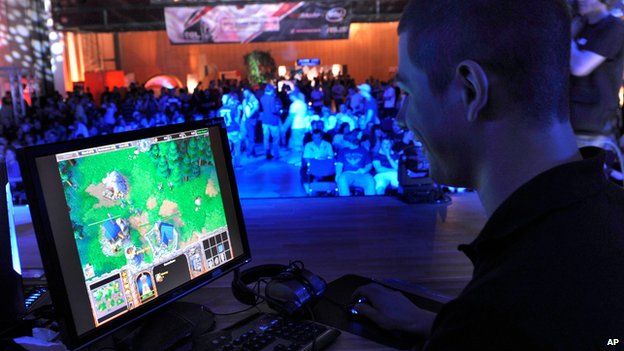

-
24 July 2015
- From the section Technology

A top video game tournament company has launched an anti-doping scheme, after a top player admitted taking a performance-enhancing drug.
Kory Friesen, known as Semphis, said he had taken an ADHD medicine called Adderall at a tournament in March.
The Electronic Sports League (ESL) said it would work with the World Anti-Doping Agency to create a “fair, feasible and conclusive” policy.
One video game expert told the BBC doping was a “big problem”.
Competitive gaming, known as eSports, is a growing phenomenon.
The ESL says it is the world’s largest eSports organisation, with close to six million members.
Players take part in global tournaments for the chance to win prizes of up to $500,000 (£322,700).
Fast reflexes
“A lot of games are about the number of interactions per minute and you need fast reflexes to compete,” said Tom Philips, deputy news editor for the Eurogamer website.
“Some of the competitions are worth a lot of money and you might get fame and sponsorship deals too. You can see why some people enhance their performance illegally.
“I think it’s a big problem, if the sport is going to be taken seriously,” he said.
Mr Friesen candidly admitted taking Adderall during a competition in an interview posted on YouTube.
Adderall is a brand of stimulant only available with a prescription. It is typically used to treat attention deficit hyperactivity disorder.
Some people take it illegally because they find it increases concentration and reduces reaction times.
“In traditional sports, athletes might take performance-enhancing drugs to increase their physical ability,” said Mr Philips.
“In eSports, gamers take them to increase mental ability.”
On Thursday, the ESL said it would introduce checks for performance-enhancing drugs to “maintain the spirit of fair play within eSports”.
The company said it would conduct skin tests at its next tournament in August, although it had not yet published a list of banned substances.
It also announced a prevention programme to educate gamers about the risks of doping, and provide “the structural support they need to help them manage the physical and emotional pressure of professional gaming”.
Mr Philips said: “It’s a new form of entertainment and it’s only because one guy stepped forward that it’s been forced to act.
“Hopefully now there’s pressure on other organisations like Major League Gaming to step up too.”

